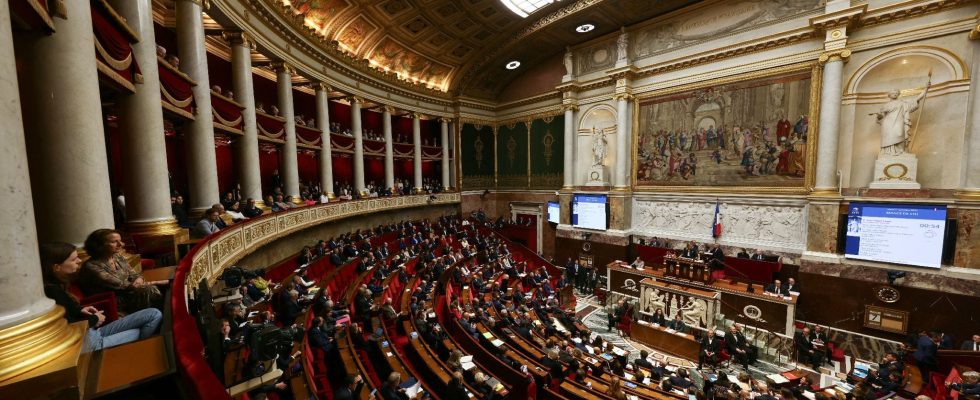This is the litmus test for the executive. The immigration bill arrives this Monday, December 11 in the hemicycle of the National Assembly. The first “crash test” from the start of the debates will be the vote on a preliminary rejection motion, tabled by the environmentalists, which could unite all the left and right oppositions.
It is a reworked text that the deputies must examine, after having removed or rewritten in committee the most corrosive additions of the right-wing swing given in the Senate, where it was first debated in November. If the majority has succeeded, for the moment, in overcoming its dissensions, even rallying the votes of the independent Liot group in the law committee, the government is now facing Les Républicains (LR) deputies ulcerated by this “unraveling” of this bill which aims to “control immigration and improve integration”. Family reunification, regularizations, quotas… Several points in this text should liven up the debates.
Regularization of undocumented workers
An emblematic measure of the bill, the regularization of undocumented workers in professions in shortage will be the subject of a battle of amendments in the hemicycle. Modified by the deputies in committee, the much-discussed article “4 bis” now proposes a principle of regularization under conditions, but which the prefect could oppose in the event of a threat to public order, non-respect of the values of the Republic or polygamy.
Insufficient for the deputies of the Republicans and the National Rally, who want to remove the system, shouting about the migratory “call for air”. On the left, Insoumis and communists also plead for the deletion of article 4 bis, but because it does not go far enough in their eyes. Socialists, ecologists and communists would like to extend the regularization measure beyond professions in shortage.
To reach out to the right, the rapporteurs of the text will suggest making access to the regularization procedure conditional on a clean criminal record. The experimentation with these regularizations is supposed to end in 2028, a date which suits neither the right nor Horizons in the majority, which wants to return to the Senate version at the end of 2026.
Migration quotas
An article introduced by the Senate provided that Parliament decides on migration quotas to impose on the government. Citing unconstitutionality, the committee in the Assembly overturned the measure: the government must present each year non-binding multi-year objectives which “can be” the subject of debate in Parliament.
The right will propose making these debates compulsory, hoping to give more weight to Parliament. On the other hand, ecologists, rebels and communists want to delete the article, because they see it as a first step towards a real “quota” policy.
Family reunion
The conditions for family reunification will give rise to a new battle, marked by differences within the majority itself. Part of the left wing of Renaissance, around Stella Dupont, contests the toughening of the procedure.
Conversely, the Horizons deputies would like to take up the version of the senatorial right. They plead for a foreigner residing in France, who requests family reunification, to be at least 21 years old (rather than 18 years old) and to have been on French territory for at least 24 months (rather than 18).
The Modem, for its part, wishes that the person requesting family reunification has a clean criminal record and has a knowledge of French allowing them to communicate at least in an “elementary way”. In committee, the deputies also adopted stricter rules for family reunification in Mayotte, which could be debated, in particular for constitutional reasons.
Conditions of access to the so-called “sick foreigner” residence permit
Like the left, Modem and Renaissance elected officials, including the president of the law commission Sacha Houlié, are opposed to strengthening the conditions of access to the so-called “sick foreigner” residence permit. The Senate would like to limit this title to the absence of similar treatment in the country of origin and to the commitment of the “vital prognosis of the foreigner” or to the “significant alteration of one of its important functions”.
The Modem will also propose to delete the article which excludes foreigners from social pricing in transport, which the Renaissance general rapporteur Florent Boudié nevertheless intends to keep and rewrite.
Another divergence in the majority: the Horizons group would like to reinstate an offense of illegal residence (a fine of 3,750 euros) introduced in the Senate and removed in the Law Committee of the Assembly. It is a proposal, also demanded by the right, to which the Minister of the Interior Gérald Darmanin has been open.
Against the advice of the right, on the other hand, the ban on locking up minors in administrative detention centers (CRA) could be extended to adults accompanying them.
